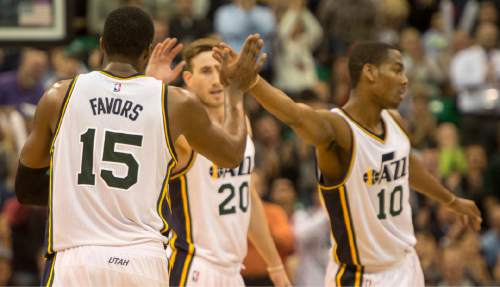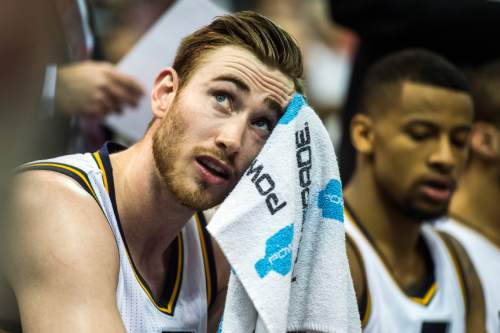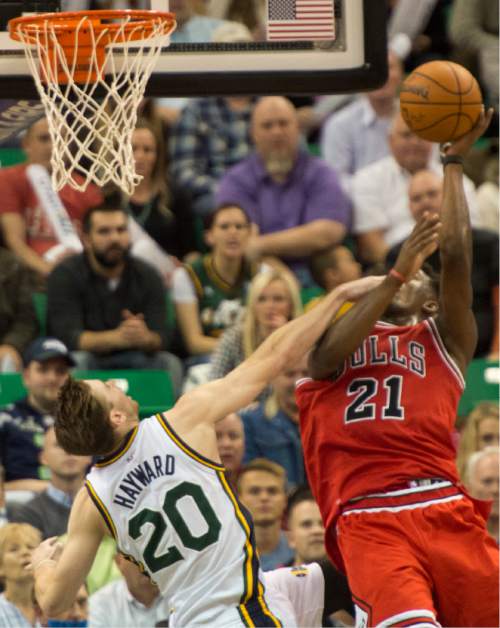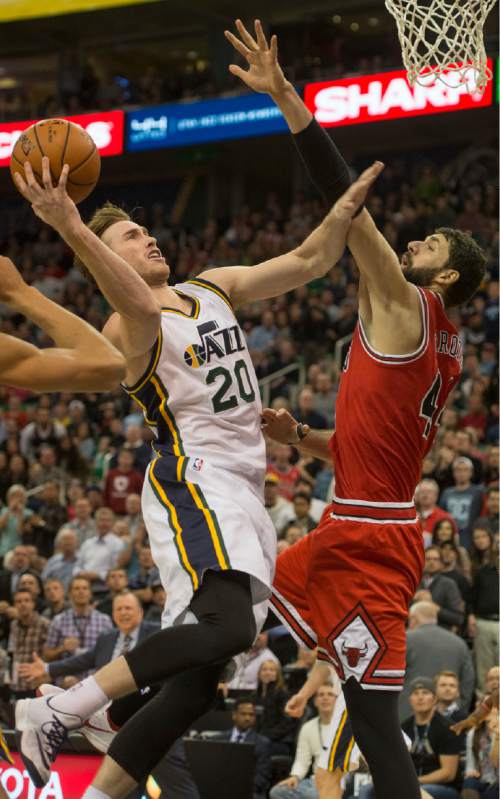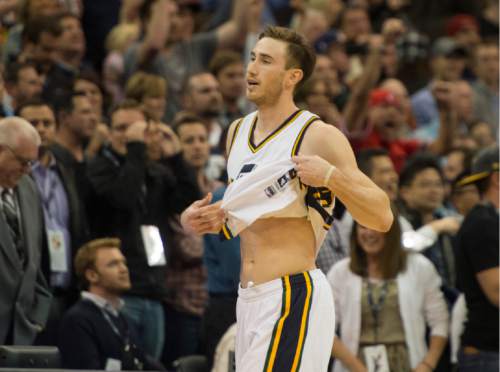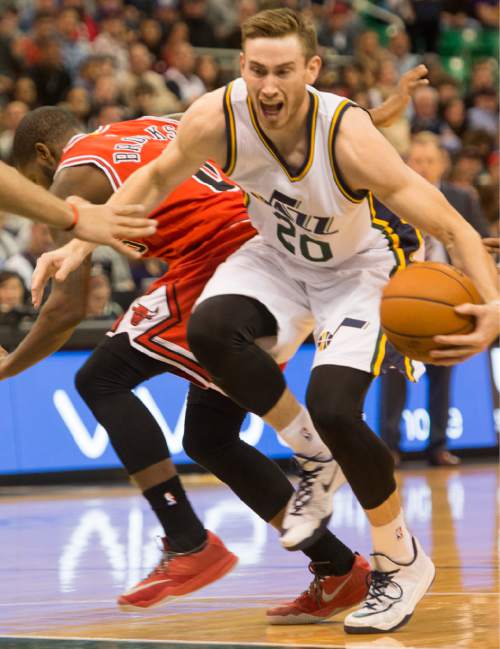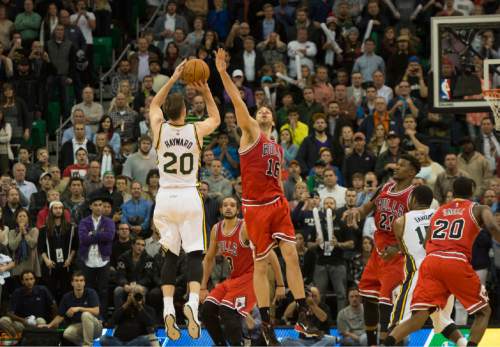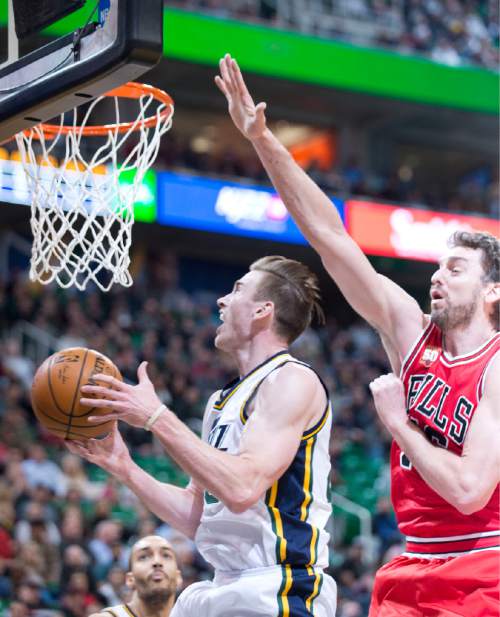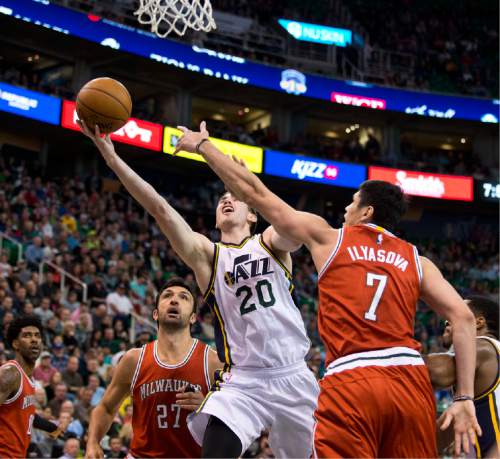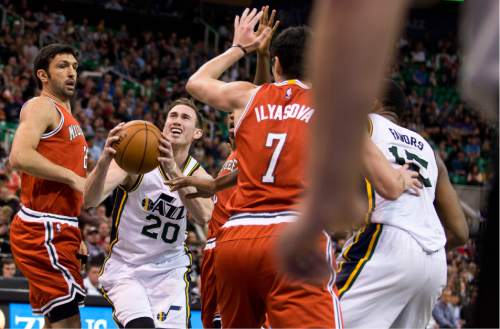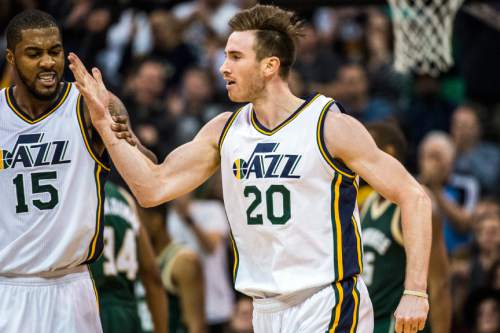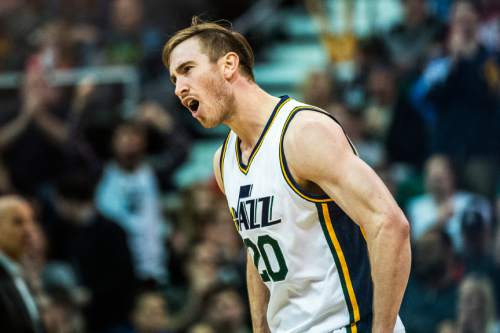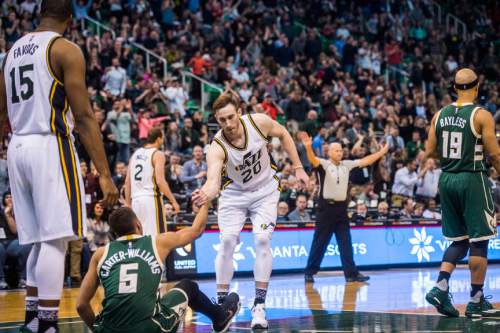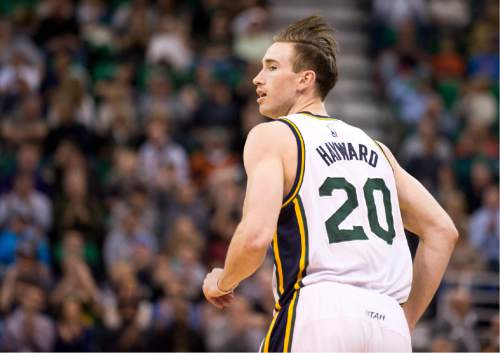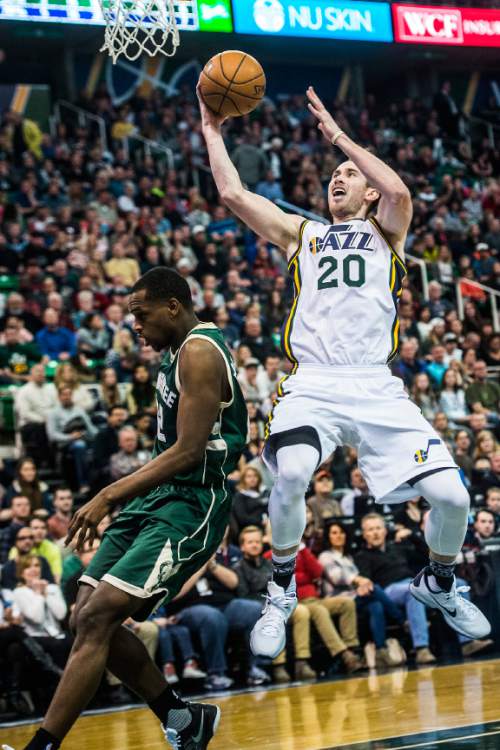This is an archived article that was published on sltrib.com in 2016, and information in the article may be outdated. It is provided only for personal research purposes and may not be reprinted.
If the Jazz trade swingman Gordon Hayward in advance of Thursday's NBA draft, team administrators will be showing foresight. That's important.
They also will be ignoring recent history. That's just wrong.
Amid the elements of hope for the future the Jazz may generate this summer, nobody should forget that they've gone four seasons without appearing in the playoffs. Five years? Unthinkable.
So whatever the Jazz do surrounding this draft, they absolutely cannot make themselves worse in 2016-17. That's what would happen if they traded Hayward to Boston or Phoenix, teams that have three first-round picks and are shopping for more immediate reward. Coincidentally enough, those teams have coaches with ties to Hayward — the Celtics' Brad Stevens coached him at Butler and the Suns' Earl Watson played with him in Utah.
But the Jazz shouldn't bite.
This franchise has gone six years without winning even one playoff game, a period that started when they made a major trade in the interest of getting some value before losing a cornerstone player to free agency. Considering what has become of All-Star point guard Deron Williams' career — never mind that he helped Dallas eliminate the Jazz from the playoff race in April — the Jazz have profited from that move, with Derrick Favors as the prized part of the package.
That's especially true, factoring in the possibility that Williams would have left via free agency after one more full season with the Jazz. Yet the degree of paranoia that triggered the dealing of D-Will shouldn't take hold regarding Hayward, who can opt out of his contract next summer and become a free agent.
Some would say the Jazz need to get something for Hayward now, while they can. That's logical, but not practical. The Jazz need to win this season, not defer the payoff of rebuilding any further into the future.
If they improve as significantly as they're capable of doing in 2016-17, they should be able to persuade Hayward to stay by making him believe in the Jazz's possibilities. In the process of impressing Hayward, they'll reward a fan base that simply shouldn't have to wait any longer for some playoff success. And if the Jazz traded Hayward now, they would miss the playoffs again and undo a big chunk of the rebuilding they've undertaken.
The disclaimers here include the fact that some combination of Boston, Phoenix and another team could offer a package that makes a trade irresistible. It's also possible that Hayward would depart next summer, no matter what happens this season.
But the Jazz have to follow through with the work they've already done in this decade. That means keeping Hayward and getting whatever they can out of this draft from the No. 12 pick — or lower, if they could trade down and get a veteran player in return.
Just for fun, the Jazz also need to find some value in the second round. If they're going to devote so much time and effort to working out 100 players in advance of the draft, they should be able to do something with their three second-round picks. Olivier Hanlan, last summer's second-rounder, didn't even make it to training camp in October.
Hanlan's joining a Lithuanian pro team had something to do with the somewhat unexpected arrival from Spain of Raul Neto, who eventually became the Jazz's starting point guard. Yet not even Dante Exum's absence due to a knee injury was enough to create any opening for Hanlan with the Jazz as the 42nd choice in the draft — which is their scheduled starting point in the second round Thursday.
The Jazz also hold the 52nd and 60th picks. The historical math shows they should get something from one of those three selections. Consider these names: Paul Millsap, Bryon Russell, Bobby Hansen, Shandon Anderson and Jarron Collins. All of them became valuable players for the Jazz, having come from somewhere between Nos. 47 and 54 in the draft. Of the 27 players the Jazz have drafted in 42-60 range in the franchise's 37-year Utah era, 10 have had productive NBA careers.
The team's scouting is much more thorough than in 1982, when Mark Eaton (No. 74) marketed himself to the Jazz with a highlight tape that former coach and general manager Frank Layden jokingly describes as 30 minutes of Eaton's taking off his UCLA warmup outfit and putting it back on.
In any case, the evidence was enough for the Jazz to make a modest investment of a fourth-round pick in Eaton, whose No. 53 jersey is retired. That's an unreasonable standard for any of the team's second-round selections Thursday, but one of them should become the greatest player in the D-League Salt Lake City Stars' history, at worst.
Twitter: @tribkurt —
Finding value
The Jazz's all-time best draft picks of the Utah era, in the Nos. 42-60 slots:
Player Year Pick
Paul Millsap 2006 47
Bryon Russell 1993 45
Bobby Hansen 1983 54
Shandon Anderson 1996 54
Jarron Collins 2001 52
Raul Neto 2013 47*
Mo Williams 2003 47
Jerry Eaves 1982 55
Jeremy Evans 2010 55
Isaac Austin 1991 48
* — acquired via draft-night trade


